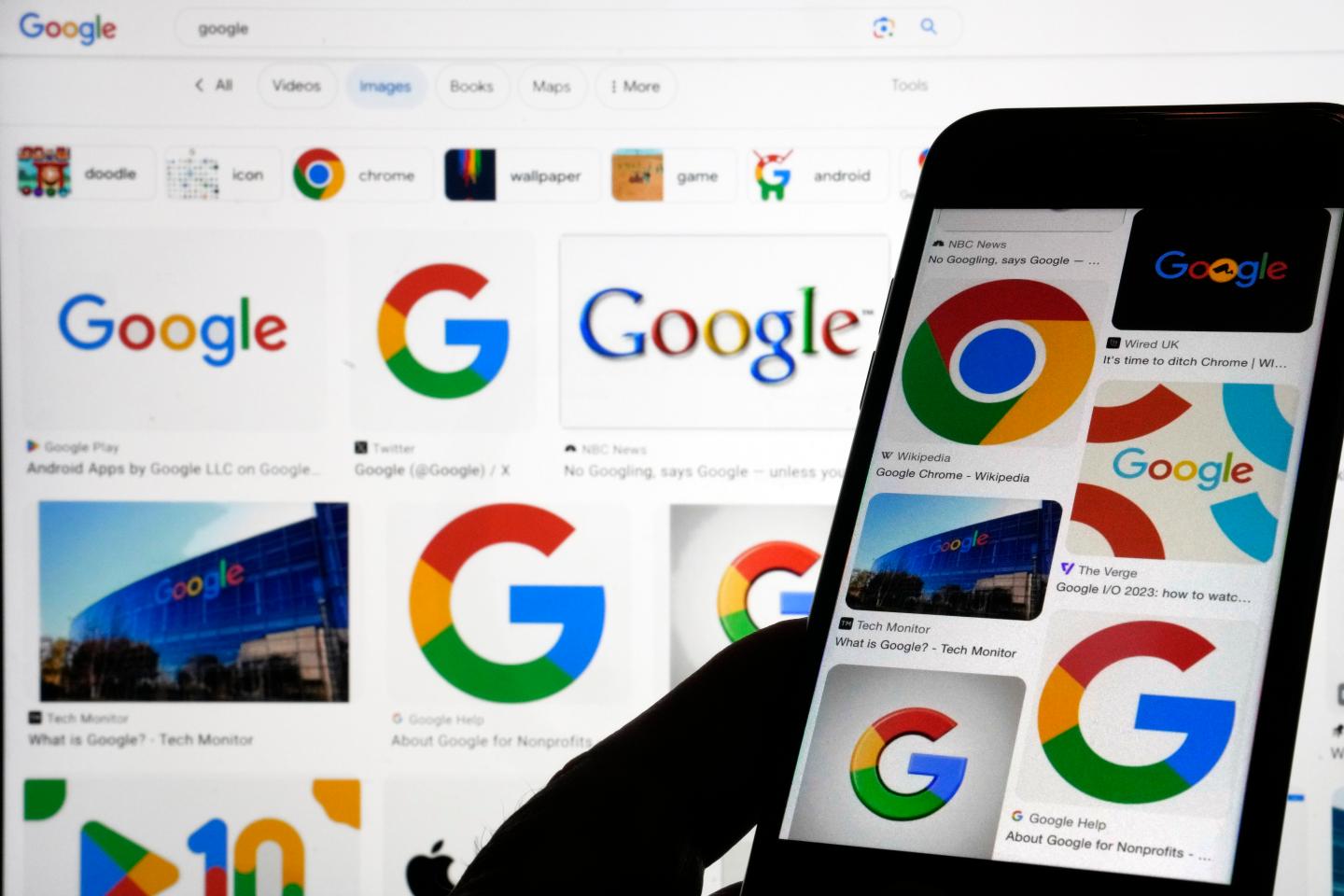


A judge on Monday, August 5, ruled that Google's ubiquitous search engine has been illegally exploiting its dominance to squash competition and stifle innovation, a seismic decision that could shake up the internet and hobble one of the world's best-known companies.
The highly anticipated decision issued by US District Judge Amit Mehta comes nearly a year after the start of a trial pitting the US Justice Department against Google in the country's biggest antitrust showdown in a quarter century.
"After having carefully considered and weighed the witness testimony and evidence, the court reaches the following conclusion: Google is a monopolist, and it has acted as one to maintain its monopoly," Mehta wrote in his 277-page ruling. He said Google’s dominance in the search market is evidence of its monopoly.
Google "enjoys an 89.2% share of the market for general search services, which increases to 94.9% on mobile devices," the ruling said. It represents a major setback for Google and its parent, Alphabet Inc., which had steadfastly argued that its popularity stemmed from consumers' overwhelming desire to use a search engine so good at what it does that it has become synonymous with looking things up online. Google's search engine processes an estimated 8.5 billion queries per day worldwide, nearly doubling its daily volume from 12 years ago, according to a recent study released by the investment firm BOND.
Intends to appeal
Kent Walker, Google’s president of global affairs, said the company intends to appeal Mehta’s findings. "This decision recognizes that Google offers the best search engine, but concludes that we shouldn’t be allowed to make it easily available," Walker said.
For now, the decision vindicates antitrust regulators at the Justice Department, which filed its lawsuit nearly four years ago while Donald Trump was still president, and has been escalating it efforts to rein in Big Tech’s power during President Joe Biden’s administration.
"This victory against Google is an historic win for the American people," said Attorney General Merrick Garland. "No company – no matter how large or influential – is above the law. The Justice Department will continue to vigorously enforce our antitrust laws."
Mehta’s ruling focused on the billions of dollars Google spends every year to install its search engine as the default option on new cellphones and tech gadgets. In 2021 alone, Google spent more than $26 billion to lock in those default agreements, Mehta said in his ruling.
Google ridiculed those allegations, noting that consumers have historically changed search engines when they become disillusioned with the results they were getting. For instance, Yahoo was the most popular search engine during the 1990s before Google came along.
Mehta said the evidence at trial showed the importance of the default settings. He noted that Microsoft's Bing search engine has 80% share of the search market on the Microsoft Edge browser. The judge said that shows other search engines can be successful if Google is not locked in as the predetermined default option.
Illegal monopoly
Mehta's conclusion that Google has been running an illegal monopoly sets up another legal phase to determine what sorts of changes or penalties should be imposed to reverse the damage done and restore a more competitive landscape. He scheduled a Sept. 6 hearing to begin setting the stage for the next phase.
The potential outcome could result in a wide-ranging order requiring Google to dismantle some of the pillars of its internet empire, or preventing it from paying to ensure its search engine automatically answers queries on the iPhone and other devices. Or, the judge could conclude only modest changes are required to level the playing field.
The appeals process could take as long as five years, predicted George Hay, a law professor at Cornell University who was the chief economist for the Justice Department’s antitrust division for most of the 1970s. That lengthy process will enable Google to fend off the likelihood of Mehta banning default search agreements, Hay said, but it probably won’t shield the company from class-action lawsuits citing the judge’s findings that advertisers were gouged with monopolistic pricing.
If Mehta decides to limit or ban Google’s default search deals, it could squeeze Apple’s profits, too. Although parts of his decision were redacted to protect confidential business information, Mehta noted that Google paid Apple an estimated $20 billion in 2022, doubling from 2020. The judge also noted Apple has periodically considered building its own search technology, but backed off that after a 2018 analysis estimated the company would lose more than $12 billion in revenue during the first five years after a break-up with Google.
Google faces several other legal threats both in the US and abroad. In September, a federal trial is scheduled to begin in Virginia over the Justice Department’s allegations that Google’s advertising technology constitutes an illegal monopoly
